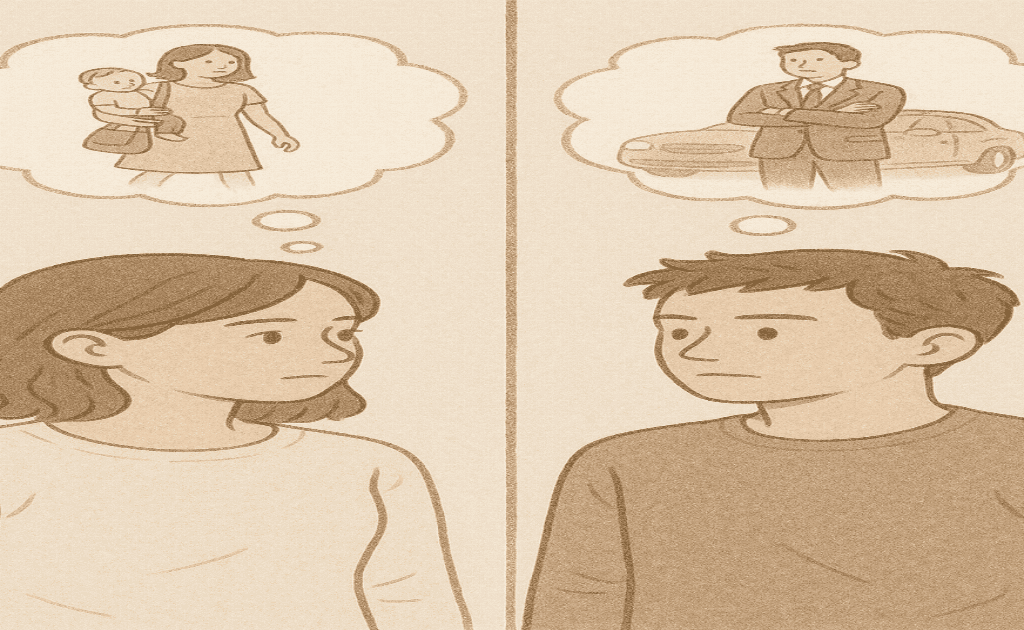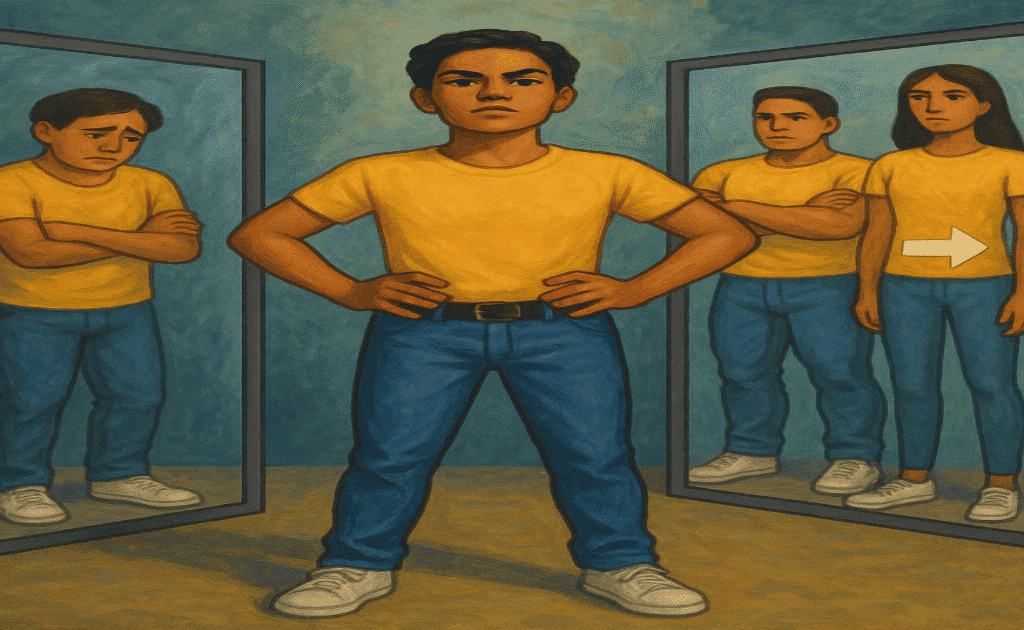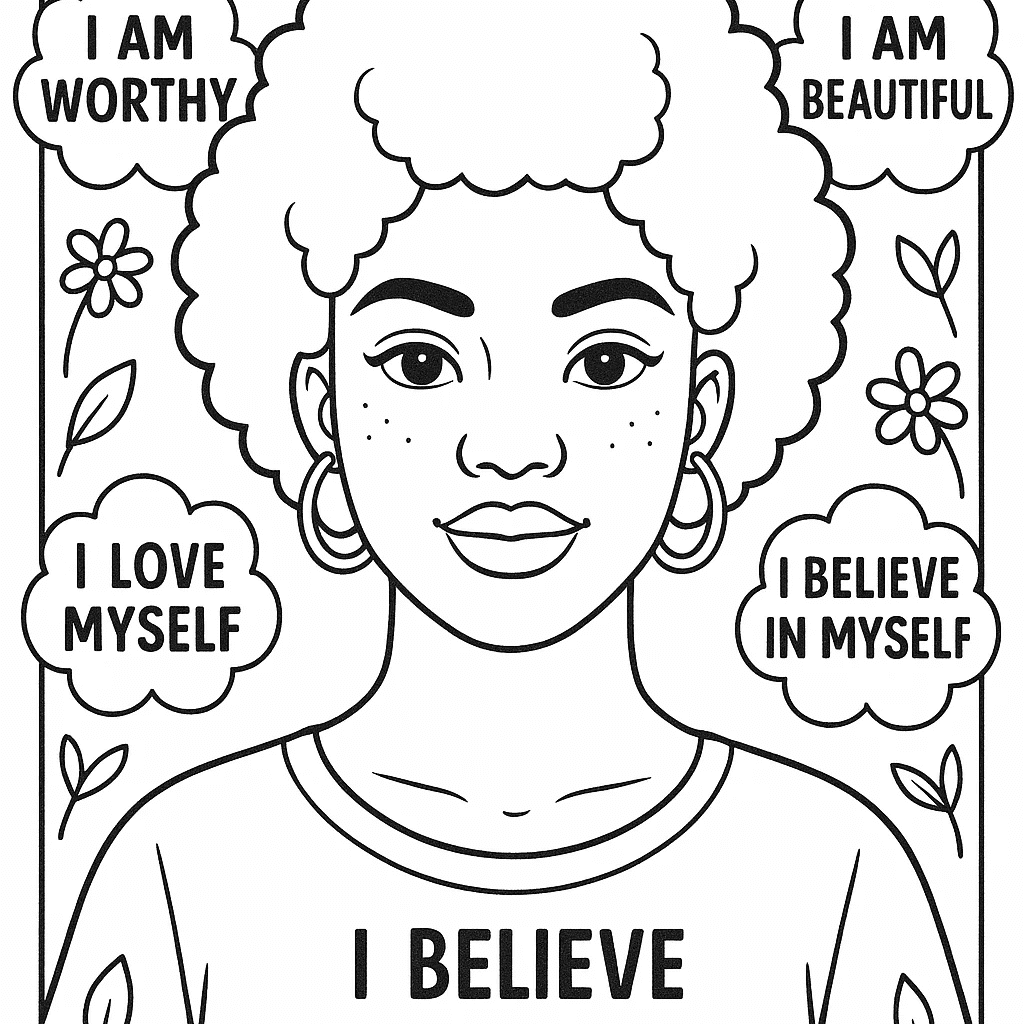Have you ever caught yourself pondering on any of these questions?
“My classmates/agemates are all doing well by now, while I’m still stuck here.”
“Why can’t I be as confident as him?”
“How did she get that promotion? I’ve been working just as hard.”
“I was even better than him in school but look at him now. Everything is falling into place for him, and I feel like I’m falling behind.”
The moment you start feeling that “the grace is greener at the other side”, then know that you have made way for comparison in your life. Psychology teaches us that we compare ourselves mostly to others when we feel insecure about our identity or progress.
Good news is that; these questions do not have to define you. As soon as you acknowledge them, you gain the power to challenge them and rewrite your inner narrative.
But why do we compare ourselves to others, and how do we get out of it? In this article, we will look at why we compare, how it impacts our mental health, and most importantly how to stop the habit.
You will discover actionable steps on how to regain your self-esteem, silence the voice of comparison, and start based on research and psychological facts.
Understanding Social Comparison Theory
Psychologist Leon Festinger introduced the Social Comparison Theory in 1954, which suggested that we determine our own individual and social worth based on our position relative to others.
That is, we basically compare ourselves to others and use them as a mirror to determine how we are doing in life and also in our minds.
There are two main ways we compare
- Upward comparison – this happens when you compare yourself to others you think are doing better than you. This can motivate you to do better, but it can also make you feel like you are not doing well enough.
- Downward comparison –this happens when you compare yourself to someone who you think is doing worse than you. This makes you feel superior, but it might also make you complacent or think that you do not have to change.
The Modern Triggers of Comparison
The Role of Social Media
Current social media platforms enhance the chances of comparison by largely showing posts that expose things we lack. The curated and edited online profile has a propensity to create unrealistic expectations and enhance feelings of inadequacy. Studies have confirmed that excessive use of social media platforms such as Facebook, Instagram, WhatsApp, and Twitter is linked with low self-esteem.
Cultural and Social Influences
Comparison may also be fueled by cultural expectations and societal norms. The constant exposure of idealised images and success stories may create pressure to meet some standards, affecting our self-esteem.
Signs You are Stuck in the Comparison Trap

- Constant dissatisfaction with your achievement.
- Low self-esteem and continuous self-doubt.
- Envying others’ successes.
- Avoiding setting goals because of the fear of being inadequate.
Identifying these signs marks the start of change.
The Effect of Constant Comparison
Persistent comparison can lead to the following effects:
- Greater depression and anxiety.
- Imposter syndrome, where you feel like a fraud despite your achievements.
- Reduced motivation, as constant comparison can be demoralising.
These effects confirm the necessity of curbing and eliminating comparison tendencies.
How to Stop Comparing Yourself to Others – 9 Psychology-Based Strategies

1. Build Awareness of Your Triggers
Start by examining situations, activities or the people that cause you to play the comparison game. Example social media, friends that are always boasting to you about their achievements or taking you to very expensive locations you cannot even afford yourself.
These situations make feel either late in life or worthless or as if others are doing better than you. Thus, you start to compare your life to theirs and start feeling worthless if you cannot match up.
You can start to journalling thoughts and feelings once you experience these triggers. This might work to offer some insights on patterns as well as aid in developing coping mechanisms.
2. Limit Social Media Consumption
Try setting limits around social media use. Unfollow pages, accounts or friends that leave you feeling less of yourself.
For those that unfollowing or blocking will seem disrespectful to consider muting them. Curate your feed more about people who inspire and support you.
3. Practice Gratitude and Self-Compassion
The value of self-compassion, consists of treating yourself with kindness, seeing common humanity, and being present. Cultivating gratitude consistently can help redirect your attention on what you do have rather than what you do not.
Remind yourself continually of how fortunate you are and always be thankful for how far you have come.
4. Redefine Success on Your Terms
Reflect on what success means to you personally, rather than adhering to societal definitions. Set intrinsic goals that align with your values and not that of others. This can give you a more fulfilling path.
The success of others does not mean you are failing, everyone journey is unique so is yours.
5. Compare yourself with you
If there is the need to compare yourself to someone, let that person be you. The only person you should compare yourself to is who you were yesterday.
When you continue to compare yourself to others, you lose sight of your own progress and achievements.
Thus, measure your progress by how far you have come and not how far others have gone from you.
5. Focus on Progress, and not Perfection
Embrace the concept of growth mentality. We all appear to acknowledge that nobody is perfect, but we always have the feeling of being emotionally low when we are unable to achieve perfection in our endeavours.
So, even though you keep trying to attain perfection, make it a point to acknowledge your progress along the way.
6. Celebrate Others Without Diminishing Yourself
Seeing others succeed does not diminish your own. Being empathetic and understanding that everyone has their own journey can be a step towards a more positive attitude.
And don’t forget; do not take someone down or criticise others just to make you feel better about yourself. You do not make someone better by making them feel inferior. People act better because they feel inspired and encouraged.
7. Curate Your Environment
Surround yourself with people who positively influence you. Reduce interaction with people and surroundings that set up bad comparison cues.
8. Practice Self-Affirmation and Visualisation
Do your daily affirmations to confirm the positive aspects of your existense.
Techniques such as visualisation are helpful in setting as well as obtaining personal objectives. See and Remind yourself daily that you are enough.

9. Seek Therapy or Coaching if Needed
If habits of comparison are genuinely impacting your emotional health, you are obviously not alone. Seek professional guidance. PsycheShare consultation room is here for you Consultation – PsycheShare
Real-Life Stories and Testimonials
Read real life testimonies on PsycheShare to see how others overcame comparison
Conclusion
It is only natural to compare ourselves to others, but if left unchecked, it can prevent us from being happy and developing. That part of you that you wish you were like already exists within you. It simply needs to be nurtured. Rather than measure your value against someone else’s schedule, work on your own development.
You will never reach your potential by measuring your value and potential based on how you measure up to another. Successful and happy people are so focused on what they are doing that they do not have time to look at others
Stay focus on your goal and run your race.
A Call-to-Action
Have you struggled with comparing yourself to others? Share your experiences in the comments below.
FAQ
Why am I always comparing myself to others?
It is a natural tendency due to our propensity to compare ourselves. However, excessive comparison can be unhealthy and is generally caused by external factors like social media.
How do I get rid of comparison anxiety?
The use of mindfulness techniques, avoiding triggers, and personal development can help alleviate comparison-induced anxiety.
Is comparing myself a sign of low self-esteem?
Negative repeated comparisons are both a result and a cause of low self-esteem. Issues with low self-worth need to be tackled.
How do I build self-worth and confidence?
Self-compassion, setting self-goals, and asking for help when the need arises are all sound ways of developing self-confidence.



[…] more on breaking out of negative comparison patterns in attraction, explore “How to Stop Comparing Yourself to Others: A Psychology‑Based Guide to Building Sel…. It provides practical insights on reclaiming self-esteem and reconnecting with authentic […]
[…] our post, How to Stop Comparing Yourself to Others, Building Self-Worth, we discuss how starting with gentler affirmations can help rebuild broken […]
[…] How to Stop Comparing Yourself to Others, Building Self-Worth, we explore how comparison especially to imagined realities distorts our self-perception. Letting […]
[…] will find even more encouragement in our post How to Stop Comparing Yourself to Others, Building Self‑Worth. It walks you through practical ways to rebuild confidence by letting go of comparisons and […]